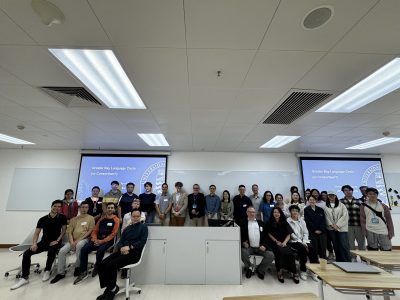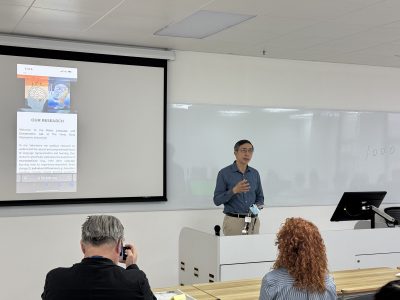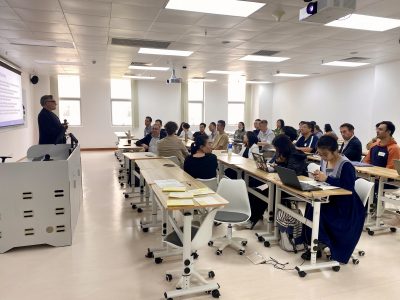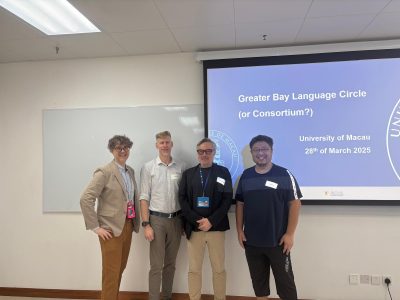The Institute of Collaborative Innovation (ICI) at the University of Macau hosted the inaugural meeting of the Greater Bay Language Circle (GBLC) on March 28, 2025, establishing a groundbreaking consortium dedicated to advancing neuroscience, neurolinguistics, and psycholinguistics research across the Greater Bay Area.
The landmark gathering brought together leading brain and language researchers from across the region who are exploring the foundations of language processing, bilingualism, language acquisition, and cognitive development. Distinguished scholars from the University of Macau and several Hong Kong universities participated in this significant academic event, presenting cutting-edge research in areas ranging from neural correlates of language processing to the cognitive mechanisms of bilingualism.
In his opening remarks, Professor Andriy Myachykov of the Center for Cognitive and Brain Sciences at the University of Macau’s Institute of Collaborative Innovation emphasized the transformative potential of the consortium. “This initiative creates a vital platform for interdisciplinary collaboration in language sciences across the Greater Bay Area. By bringing together experts in neurolinguistics, psycholinguistics, and cognitive neuroscience, we’re establishing an important collaborative platform that will help address complex scientific questions in our uniquely multilingual region.”
The meeting received welcoming addresses from Professor Ping Li, the Sin Wai Kin Professor in Humanities and Technology, Chair Professor of Neurolinguistics and Bilingual Studies, and Dean of the Faculty of Humanities at the Hong Kong Polytechnic University, who underlined the importance of bringing together researchers from Greater Bay Area universities in order to advance Chinese and international language science.
The GBLC represents an important step forward in regional academic collaboration, establishing an interconnected network of language research laboratories spanning the University of Macau, Hong Kong universities, and eventually expanding to other institutions throughout Guangdong Province. The consortium’s vision extends beyond fundamental research to include applications in language education enhancement, neurocognitive rehabilitation, preservation of the region’s rich linguistic heritage, and support for multilingual development in diverse populations including children, adults, and clinical groups.
The GBLC will pursue several strategic objectives aimed at facilitating research exchange through sharing of neuroimaging data, experimental paradigms, and computational models of language processing; supporting joint project development and grant applications for large-scale neurolinguistic studies; enhancing student supervision opportunities through cross-institutional training in advanced neuroscientific methods; creating a collaborative space for brainstorming innovative approaches to studying the brain-language interface; and seeking institutional support for academic activities including workshops on emerging neurotechnologies and visits from international experts in language neuroscience.
The meeting concluded with a networking session where researchers discussed potential collaborations on studies involving fMRI, EEG, MEG, and other methods to investigate language processing in the uniquely multilingual context of the Greater Bay Area. Plans are already underway for regular seminars and collaborative projects between participating institutions, with the next meeting scheduled to take place at City University of Hong Kong, hosted by Professor Niels Schiller, Chair Professor and Head of The Department of Linguistics and Translation.
The GBLC initiative aligns with broader regional efforts to establish the Greater Bay Area as a global hub for brain science and neurolinguistic research, leveraging the area’s linguistic diversity as a natural laboratory for studying language and cognition.






